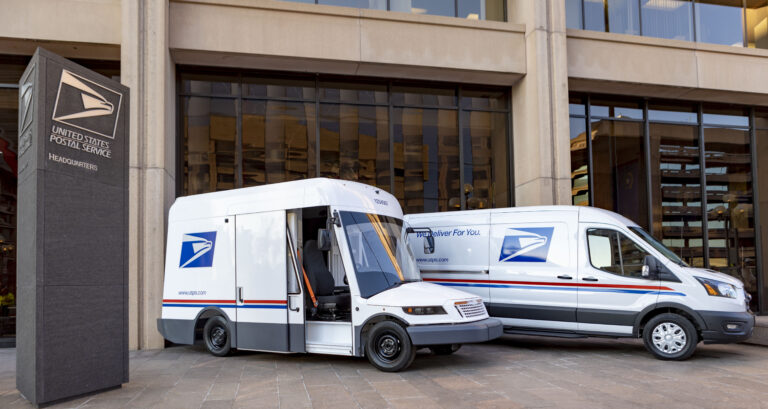The United States Postal Service (USPS) has unveiled its first electric vehicle (EV) charging stations at its South Atlanta Sorting and Delivery Center (S&DC).
The new charging stations, which will be installed at approximately 400 S&DCs across the USA, form part of USPS’s electrification and modernization of its delivery fleet. The first 14,000 EV chargers will be manufactured by three suppliers: Siemens, Rexel/ChargePoint, and Blink.
“The improvements we need to achieve in sustainability are an integral outgrowth of the broader modernization efforts we have undertaken through our 10-year Delivering for America plan,” said Postmaster General Louis DeJoy. “As we transform our operating processes and invest in new automation, new technologies and upgraded facilities and vehicles, we will generate significant efficiencies that reduce our costs, slash our carbon footprint and minimize waste. We are grateful for the support of Congress and the Biden Administration through Inflation Reduction Act funding, which helped enable the electrification in evidence here today.”
“In every neighborhood in America, people know their postal carrier and recognize the USPS vehicle driving down their street,” added John Podesta, Senior Advisor to the President for Clean Energy Innovation and Implementation. “The work USPS is doing to electrify those vehicles is making EVs commonplace on every road and street in our country, while reducing air pollution and increasing comfort and safety for the dedicated public servants who deliver our mail.”
During the event on January 22, USPS also showcased new battery-powered and domestically manufactured commercial off-the-shelf (COTS) delivery vehicles that will make up a portion of its EV fleet. Deployment of electric delivery trucks will start in Georgia and then expand to other locations across the country throughout the year. The vehicles feature air conditioning and advanced safety technology and are designed to meet modern operational requirements.
USPS anticipates adding a total of 21,000 COTS EVs and at least 45,000 battery-electric Next Generation Delivery Vehicles (NGDVs) to its fleet by 2028, bringing the total number of EVs in the delivery fleet to more than 66,000.


